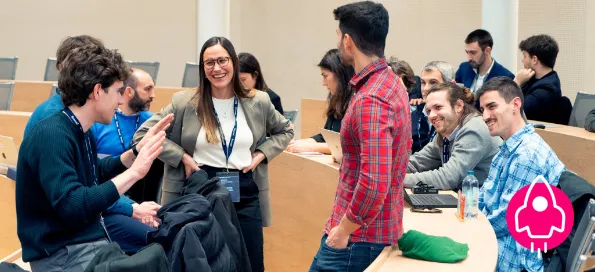
Startups, Those Veritable Boosters of Innovation
2022 was a strong year for the Italian startup ecosystem, with approximately €2 billion in venture capital investment—a record high for the sector. However, 2023 marked a slowdown due to broader macroeconomic trends. This notwithstanding, recent years have seen a significant leap compared to the pre-COVID era, when investments barely reached half a billion euros. This is encouraging, not only because venture capital typically flows to companies that have a high potential for scaling and growth, but also because extensive research in entrepreneurial finance shows that venture capital has a substantially positive impact on the performance of investee companies, beyond just providing financial resources. However, Italy’s total venture capital investment is still less than one-fifth of that in France or Germany, and lower than smaller economies like Sweden, the Netherlands, or Spain.
There are at least three reasons, identified by empirical research, that are critical for fostering an environment with more startups—particularly those that are targets for venture capital. These startups typically have innovative value propositions, are often backed by technological solutions, and have the potential to grow significantly or even disrupt their markets.
First, while startups represent a small share of overall employment at the national level, research shows that new firms are a major driver of net employment growth. For a country like Italy, innovative startups could provide professional opportunities that are often unavailable in large corporations and might help curb the migration of talent. Anecdotal evidence from university students suggests that working in a startup is becoming an increasingly popular aspiration and a well-regarded career path.

Second, startups provide a natural environment for experimentation. Despite the potential drawbacks of high rates of failure, startups serve as a key mechanism for testing new business ideas and innovative solutions. Research has shown that the innovation ecosystem has shifted—large corporations are less often the initiators of novel ideas, although they still hold a significant advantage in exploiting and commercializing them. What has emerged is a division of innovative labor: startups initiate the innovation process and frequently pass it on to larger, established firms that acquire or collaborate with them. This trend is even more pronounced for innovations at the cutting edge of science, known as deep tech. Deep-tech innovations are often seen as potential solutions to some of humanity’s most pressing challenges, such as addressing climate change through advancements in energy storage, carbon sequestration, and alternative fuels. Research has demonstrated that startups hold a significant advantage in transforming scientific discoveries made by universities and research organizations into innovations that are both more original and more widely applicable than those developed by established firms. Interestingly, in a recent paper I co-authored in Research Policy, I show that while Europe is capable of producing frontier research, it lags behind the U.S. in turning scientific advances into innovation, partly due to a less developed startup ecosystem.
Third, startups are a powerful force for creative destruction. With their innovative, transformative, disruptive solutions, they challenge the status quo in markets and industries, increasing pressure on established incumbents and raising the level of competition. This is especially important in light of the growing trend toward market concentration in many industries across economies. A good example is Ornikar, a French startup which about ten years ago entered the heavily regulated and uncompetitive market of traditional driving schools. By 2021, it had raised €120 million in a Series C venture-capital round and captured one-third of the market of drivers taking the French traffic regulation test.
Research shows that a vibrant startup ecosystem is essential for the creation, growth, and success of startups. Universities and research institutions serve as sources of scientific advancement and talent, while incubators and accelerators play a vital role in nurturing innovative startups during the early stages of their development. Public support through grants and subsidies, combined with a favorable regulatory and legal environment that reduces setup costs, is positively correlated with an increase in the number of new ventures. However, for startups to scale and thrive, research indicates that key factors are access to a diverse range of investors across the various stages of a startup's lifecycle, along with a large potential market demand and an active venture acquisition market. To foster more innovative, market-changing startups, a comprehensive set of policy measures must be implemented, by adopting a holistic approach.





